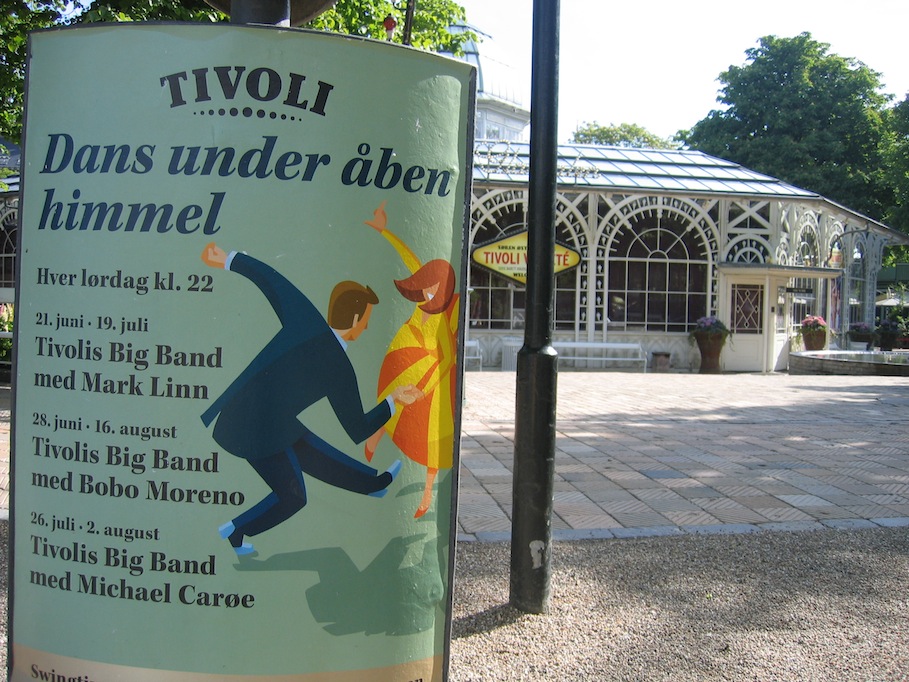By 07.45 the total is 544.
Since May 2009, some 1,470,783 have passed this way.
I’m standing in Copenhagen’s Town Hall Square, by the statue of Hans Christian Andersen and the Tivoli amusement park, watching the rush hour. Businessmen with iPod earphones gleaming against brooding Nordic skies, students in brightly coloured Wellies and parents taking kids to school in waterproof tag-alongs.
But they’re not driving. As the roadside electronic counter beside me confirms, peak period in Copenhagen is an increasingly two-wheeled affair.
Green debate
Copenhagen hosts the United Nations Climate Change Conference from Monday, welcoming Messers Brown and Obama amongst others to hammer out a replacement for the Kyoto Protocol.
The politicians seem unlikely to reach a consensus but the Oresund region, comprising Copenhagen and Sweden’s Malmo, the two cities at either side of the Oresund Bridge, plans to use the event to showcase how Scandinavia does green tourism better than anywhere else.
Copenhagen is already rated as one of the world’s greenest cities with parks, harbourside swimming pools and a recent explosion in organic eateries. It aims to be the world’s first carbon-neutral city by 2025, Tivoli [pictured above] plans to run on renewable wind energy by 2010 and, in September this year, it hosted Co2penhagen, the world’s first carbon dioxide neutral-festival.
Throughout the conference, Town Hall Square will be full of stands showcasing Oresund’s green projects. Hotels and restaurants are busily trumpeting their eco credentials and tour agencies arranging green-themed itineraries for delegates.
Even the National Gallery of Denmark is getting in on the act with the exhibition, RETHINK presenting a utopian vision of the future, whereby we all live in floating biospheres.
Swedish scene
But how to spot the green gems amongst the green wash?
I start my quest in Malmo with the kind of roof-lifting gale that strikes cold fear into the most stoic of Viking hearts. “There’s an old Swedish saying, ‘There’s no such thing as bad weather, just bad clothing’,” says my guide, Jennifer Lenhart, a sustainability strategist, eyeing my ill-prepared attire with the withering look of a women who spends a lot of time outdoors – and in all weathers.
Jennifer leads me through the windswept Western Harbour, an eco-showcase district regenerated from derelict industrial warehouses. After we explore the rabbit warren of sustainable built apartments, cute harbour-side cafés and green-powered galleries, we duck into the flagship organic restaurant, Salt & Brygga.
Over a late lunch of Smaland sausages, creamed potatoes and beetroot salad in the country-kitchen restaurant, Jennifer, who will guide UN delegates during the conference, explains how the harbour is a showcase for Scandinavia’s can-do attitude towards green living.
“Oresund may be small on the world map, but it can stand up and show the world how to make green projects tangible.”
Cycling ambassador
The next morning in Copenhagen, after a breakfast of low-food-mile eggs, fair-trade coffee and organic orange juice from the Scandic Hotel’s new Climate Menu, I have a date with an ambassador. A cycling ambassador, that is.
On a nondescript sidestreet behind Norreport station, the Cycling Embassy of Denmark is planning to take their specialist knowledge of cycling culture to the world. Outside the work-in-progress office, a blue signs boldly proclaims ‘Pedal power. Yes, please!’
Lise Bjørg Pedersen, Head of Political Affairs, greets me with coffee and a vision of the future, whereby 50 per cent of all commuters will travel to their place of work or study in Copenhagen on two wheels by 2015. She says:
“In Denmark cycling has no gender, race, age or social status. Even our Crown Prince Frederik travels by bicycle.”
Lise will be hosting a group bike ride around Copenhagen during the UN conference to show the world that cycling is part of the solution. “People travel bike in Denmark because it’s easier than the car, not just because it’s a green,” she adds.
Copenhagen already boasts a slew of themed bike tours for visitors, including City Safari and Bike with Mike. There’s also a new sightseeing bus tour, the CityCirkel, which runs entirely on electricity.
City tour
But the latest green tour features around another form of transport and is run by a gregarious ex-pat Irishman with a fleet of Segways, a sort of two-wheeled, electric scooter priced at €6500 (£5850) a pop.
Seamus Daly gives me a crash-course in handling the Segway in a quiet car park before we hit the streets. The tours appeal to eco freaks and the downright curios alike with Seamus’ insider view of the city providing the commentary. Most involve a coffee stop at a cosy café, or a drop of the hard stuff at one of his favourite bars.
We set out to sample the new Globe Ale, the carbon dioxide-neutral beer from the local Norrebro Bryghus microbrewery, cruising in the cycle lane at a steady 13mph.
“Green living is not a theory waiting to be proven,” says Seamus, as we sip our slightly fizzy, amber-coloured ale, the gentle glow of candles bouncing off the stark, steel microbrewery vats.
“In their slow and subtle Danish way, the locals have already integrated the green mentality into daily life.”
On the way back to Town Hall Square my Segway skills are much improved for a pint of strong Danish lager. Weaving in and out of the bicycle rush hour in the half gloom of a winter afternoon, I can feel Oresund’s pragmatic enthusiasm for all things green rubbing off on me.
The politicians may not reach a consensus about a greener lifestyle this week, but the people of Oresund are already living it.
* This story was first published in the Daily Express in 2009. Liked this? Try also: West Sweden: Folklore traditions of midsummer.
Post your comments below.
